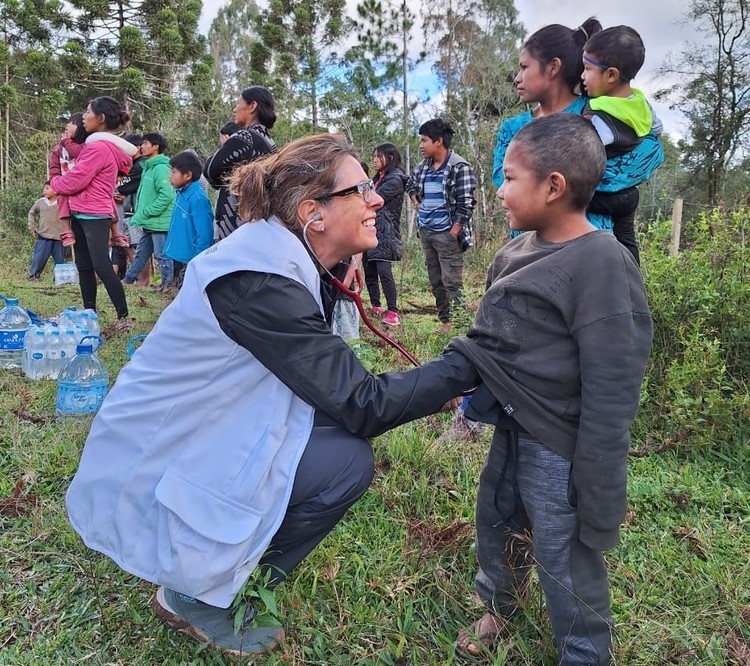Professionals face logistic challenges in order to reach population affected by severe floods in the state of Rio Grande do Sul.
The above account from MSF medical coordinator Rachel Soeiro shows the impact of a disaster of such proportions that is just without any precedent in Brazilian history.
The extreme rainfall and flooding that hit the southern Brazilian state of Rio Grande do Sul isolated and forced the evacuation of whole cities. Roads were destroyed, bridges were knocked out and the main airport, in the capital city of Porto Alegre, is indefinitely closed. More than 460 state´s municipalities, out of a total of 497, have been hit.
Above all, it took an irreparable human toll. According to provisional data, more than 150 people died and about 100 are still unaccounted for. Many people are without water, electricity and basic services. More than 2 million people were impacted and over 600 thousand have been displaced. Makeshift shelters are being improvised in many locations to receive people who don´t know when or if they will be able to return to their homes.
MSF support during the emergency
MSF emergency teams are responding to the climate disaster in Rio Grande do Sul, with activities mainly focused on the most vulnerable populations.
We are supporting the local indigenous health authorities with the delivery of medical assistance, drug supplies, water and food to indigenous communities. We visited indigenous communities such as Guajayvi and Kurity, in the municipalities of Charqueadas and Canelas. On one occasion, the population was totally isolated by the rise of the waters and had been without help for more than ten days.
We also cooperate with authorities to facilitate the delivery of water and food to isolated areas. As most roads are blocked, organizing transport is very complex. Many places can only be reached by helicopter.
In the city of Canoas, in Porto Alegre´s metropolitan region, MSF is setting up two mobile clinics with teams of doctors, nurses, psychologists and health promoters who are going to start working in shelters in the following days.
Additionally, we are offering remote training on mental health first aid to professionals who are assisting flood victims. Mental health support will remain one of the focus of MSF emergency activities, together with medical consultations.
The scenario in the region is still very volatile, with unstable weather that may cause additional flooding or delay the return of people to their homes. MSF is permanently monitoring the situation and may adapt its response to provide the best possible assistance according to the most urgent needs.













